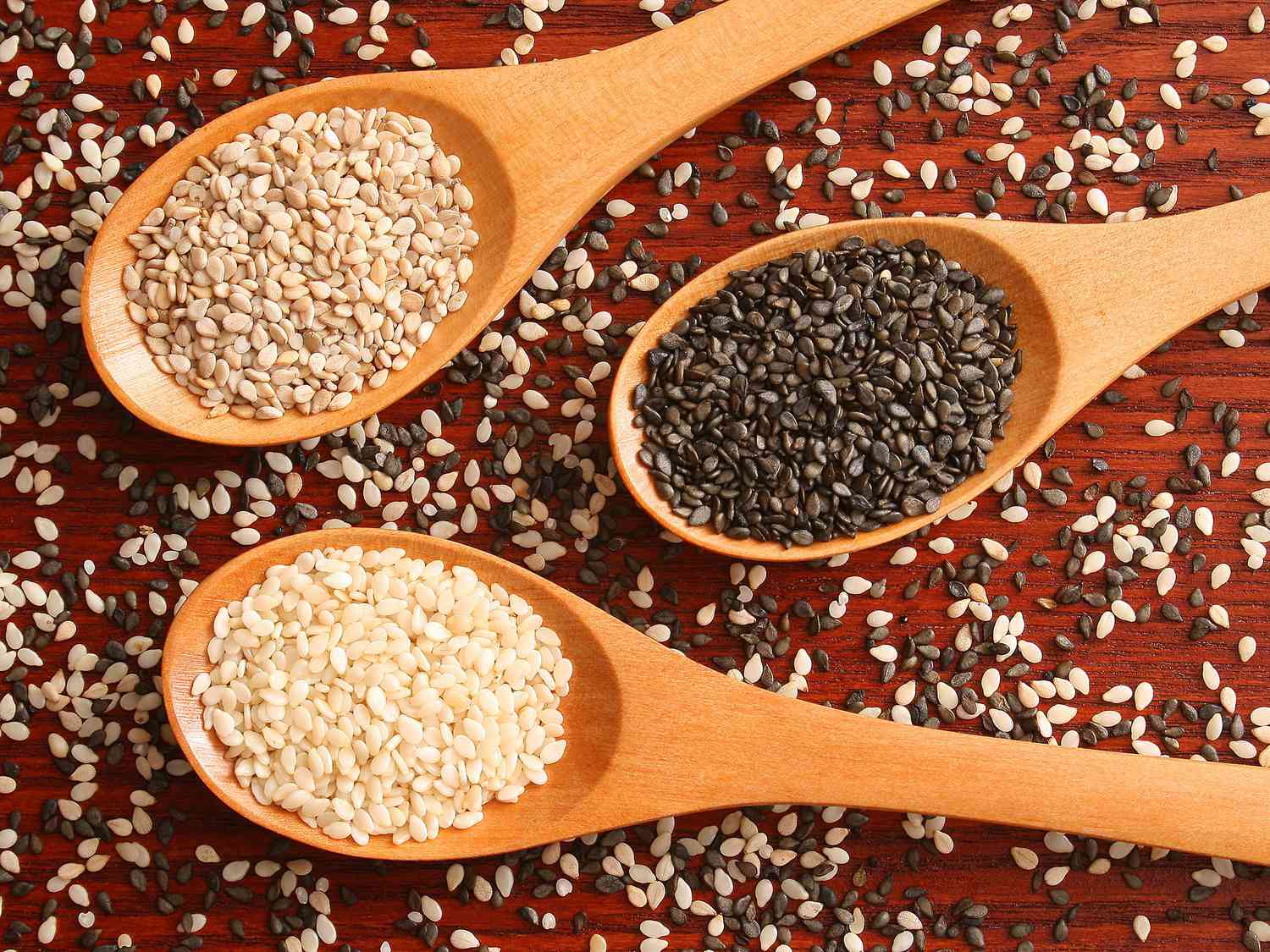Pakistan loses its edge in supplying China with sesame seeds: Report

By MG News | November 06, 2024 at 09:50 AM GMT+05:00
November 06, 2024 (MLN): Pakistan’s agricultural industry is struggling to adjust to the end of a shortlived boom in supplying a staple for China’s kitchens, as demand and prices for sesame seeds collapse amid increasing competition from other countries, Financial Times reported.
China, the world’s largest sesame seed buyer, imported just $19mn worth of seeds from Pakistan in the harvesting months of August and September this year, a 53% fall compared with the same period in 2023 when demand was at its peak, according to data from Beijing’s General Administration for Customs.
Pakistan had been benefiting from conflict in Sudan, Ethiopia, and Myanmar disrupting supplies from producers there, and Beijing’s decision to abolish a 9% duty on seeds from its neighbour.
Alan Xi, general manager for agriculture at China Machinery Engineering Corporation in Pakistan, said waning demand from China was driving prices down to Rs12,000 a maund (40kg) — about a dollar a kilo — for the farmers he contracts to grow sesame, well below the Rs20,000 they fetched last year.
“Very, very high demand from China drove farmers to want to switch to sowing sesame seeds,” said Xi. Now “some farmers are telling me, they will never grow sesame again because of the low price”.
“Since the season started [in August], prices [of sesame] have been coming down every week,” said Fahad Shoukat, chief executive of Armcom, a Karachi-based sesame exporter.
Although his business specialises in selling premium-grade sesame to the US and Europe instead of China, the price slump has still hit his company’s bottom line. “Nobody [importers] is taking long-term positions, while last year people in Europe and the US would keep bigger stocks in their warehouses.”
Pakistan exported $403 million worth of sesame last year, making it the world’s fifth-largest exporter, up from just $40m in 2019, according to data from S&P Global Commodity Insights, as China scrambled to replace lost volumes from conflict zones and attacks on Red Sea shipping lanes.
Pakistan’s tariff exemption has given its exporters an edge over fellow autumn and winter suppliers in India, while the port of Karachi is relatively closer to Chinese ports than those of competitors in west and east Africa, according to analysts and exporters. Pakistan was responsible for about a fifth of the $1.53 billion in sesame imports by China in 2023, which were turned into cooking oil, sauces, and dessert garnishes.
Farmers sow sesame on more than 1.8m acres of Pakistani farmland, four times the area under cultivation for the seed in 2020, according to data from the Ayub Agricultural Research Institute, a Faisalabad-based research centre.
They chased “exceptionally high prices” globally that peaked near $2,500 a tonne for some seeds last year, said Jose Gutierrez Fernandez, an analyst at S&P Global Commodity Insights.
But sesame was now “correcting” to a price of about $1,200 a tonne this year, he said, as new rivals, such as Brazil and Niger, scaled up production, and Sudanese and Ethiopian exporters found their way back to the market.
Ibrahim Shafiq, director for exports at Lahore-based Latif Rice Mills, said that the company, which sells half of its sesame seeds to China, saw a surge in orders last year, but the boost “was artificial and could not be sustained”.
The hit to Pakistan’s sesame market is the latest sign of how the success of the cash-strapped country’s agriculture exports, which policymakers are banking on to boost much-needed foreign exchange, is tied to its neighbouring economies.
A surge in rice sales abroad last year was aided by a year-long Indian ban on exporting non-basmati varieties of the grain and now appears threatened after New Delhi lifted the restriction last month.
As Pakistan can no longer bank on record high demand from China for its lower-grade seeds, exporters will have to boost their quality to appeal to higher-end buyers, analysts said.
“The key factor to export to China is high volumes and low prices,” said Gutierrez Fernandez.
“The challenge for Pakistan in this price environment might be increasing its exports to markets such as South Korea and Japan that are willing to pay high prices for sesame that meets their maximum residue limits, but that requires more cleaning of the product from debris and pesticides.”
For farmers, however, the alternative is switching to a different crop.
“This year, orders from China have slowed as buyers hope for better prices and better quality,” he said.
“It’s been a demoralising year,” said Feroz Akhtar Shah, a sesame farmer from Layyah in central Pakistan who also collects crops from other farmers. He sold 30 tonnes to exporters in 2023 receiving more than Rs18,000 a maund, but the price has now fallen to Rs13,000.
“We barely broke even this year — no profit, but thankfully not a loss,” he said.
The former garment factory general manager had already changed careers, jumping into the sesame market two years ago after a cousin studying in China told him about the country’s demand for the seed.
Unusually intense monsoon rains this summer devastated the quality of his seeds and, if prices do not pick up next year, Shah and the farmers he collects from are considering investing in mango trees instead.
Financial Times
Related News
| Name | Price/Vol | %Chg/NChg |
|---|---|---|
| KSE100 | 130,302.07 153.18M |
-0.03% -41.96 |
| ALLSHR | 81,082.19 487.00M |
0.07% 58.20 |
| KSE30 | 39,853.13 63.39M |
-0.14% -55.14 |
| KMI30 | 189,766.82 79.20M |
0.12% 231.82 |
| KMIALLSHR | 54,875.08 242.16M |
0.17% 91.43 |
| BKTi | 34,658.08 15.18M |
-0.81% -282.66 |
| OGTi | 28,505.75 11.74M |
0.74% 209.69 |
| Symbol | Bid/Ask | High/Low |
|---|
| Name | Last | High/Low | Chg/%Chg |
|---|---|---|---|
| BITCOIN FUTURES | 109,985.00 | 110,120.00 109,200.00 |
-300.00 -0.27% |
| BRENT CRUDE | 68.63 | 69.00 68.41 |
-0.48 -0.69% |
| RICHARDS BAY COAL MONTHLY | 97.50 | 0.00 0.00 |
0.75 0.78% |
| ROTTERDAM COAL MONTHLY | 109.20 | 110.00 108.25 |
1.70 1.58% |
| USD RBD PALM OLEIN | 998.50 | 998.50 998.50 |
0.00 0.00% |
| CRUDE OIL - WTI | 66.99 | 67.50 66.78 |
-0.46 -0.68% |
| SUGAR #11 WORLD | 15.56 | 15.97 15.44 |
-0.14 -0.89% |
Chart of the Day
Latest News
Top 5 things to watch in this week
Pakistan Stock Movers
| Name | Last | Chg/%Chg |
|---|
| Name | Last | Chg/%Chg |
|---|




 Trade Balance
Trade Balance
 CPI
CPI